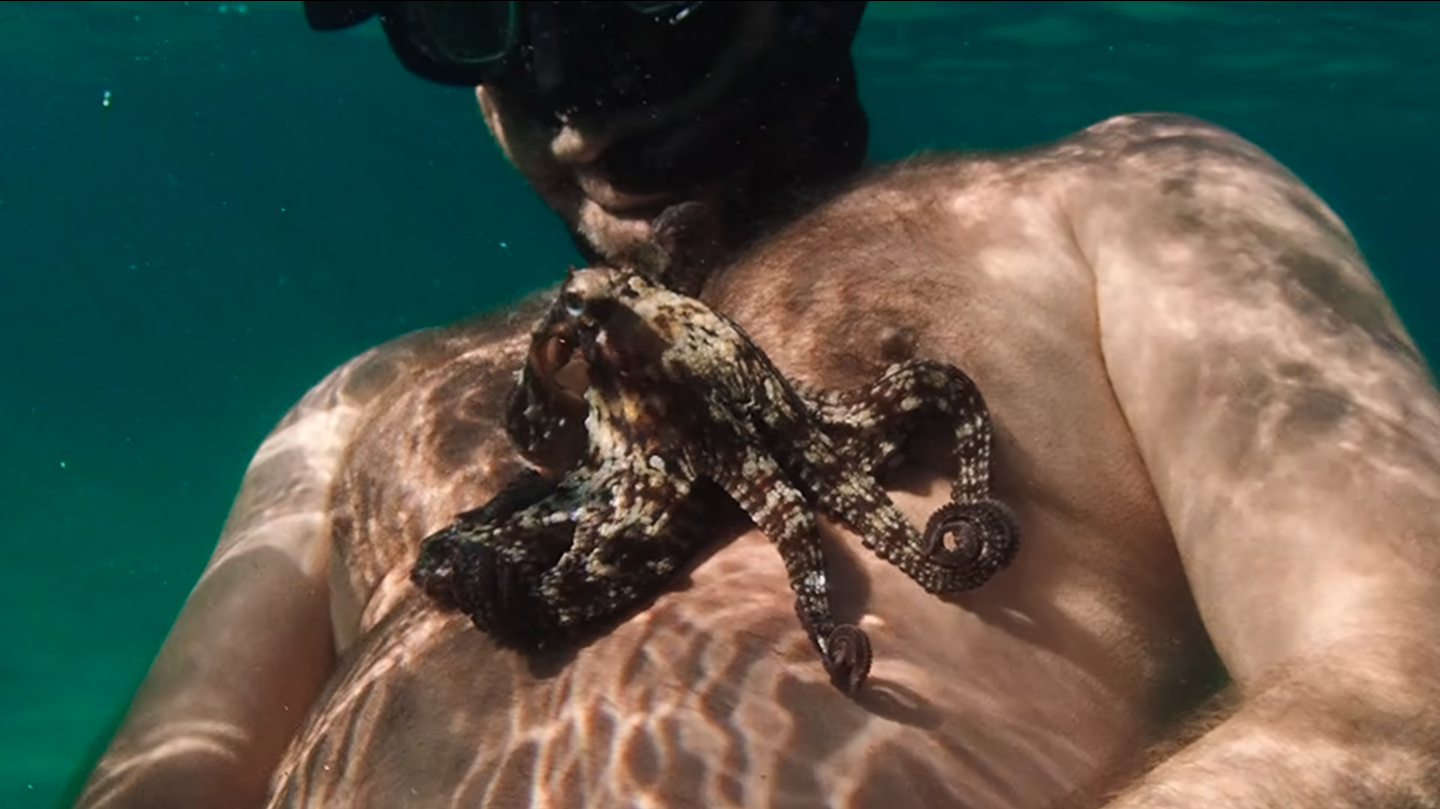“She was teaching me to become sensitized to the other.”
The biographical documentary ‘My Octopus Teacher’ follows the unique relationship between wildlife filmmaker Craig Foster and an octopus living on the Western Cape of South Africa. As the film unfolds, the octopus becomes accustomed to Foster’s presence and what starts as curiosity blossoms into an astonishing companionship. For Foster, this love for the animal provokes an emotional epiphany about his own relationships with humans, thus improving his personal life drastically. However, the film seems to assume that the same affection is reciprocated by the octopus, and fails to examine the moral equivocations of human impact on the animal itself. In this particular scene, we can see how the anthropocentric style of documentary filmmaking allows us to be easily drawn into Foster’s perspective and neglect a more sceptical analysis of the animal’s enjoyment.
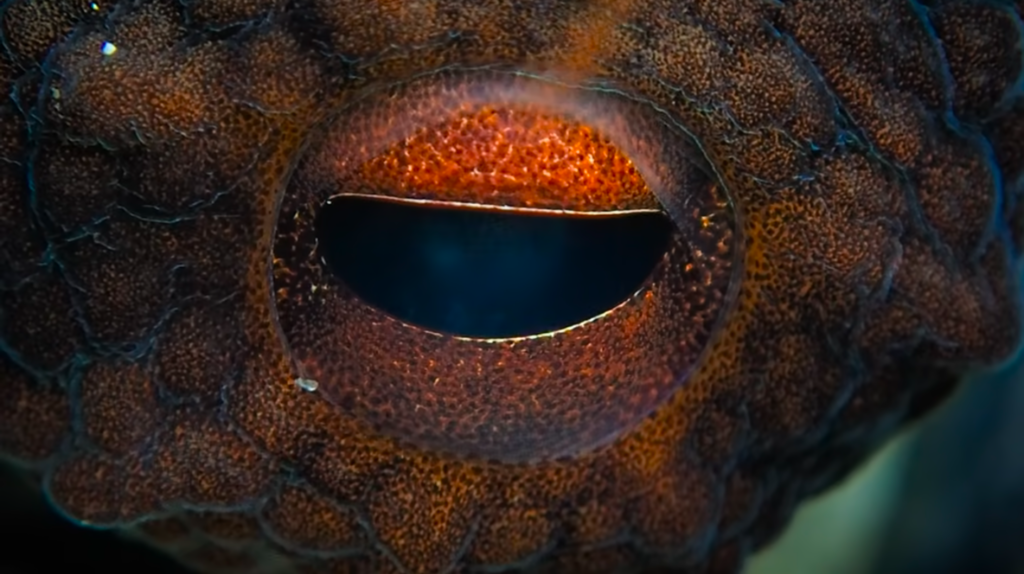
When Foster first embarks on his relationship with the octopus, he considers the benefits it might have on her welfare and intelligence, clearly demonstrating an awareness of his impact on her. As he narrates we are shown an extreme close up of the octopus’ eye blinking at the camera. This proximity immediately brings us closer to the animal and allows us to consider what she might be thinking. Foster narrates: ‘Somehow she realises, “this thing is not dangerous”, so you go and you interact with this human. And perhaps it does give you some strange octopus level of joy.’ As Calarco notes, ‘sometimes [animal empathy] has no obvious survival value’.[1] Hence what we are shown here is a relationship that serves no biological or evolutionary purpose but merely brings together a human and a wild animal to provide ‘some strange octopus level of joy’. However, such joy is only evidenced by Foster’s interpretation which is not necessarily reliable. As Foster tries to empathise with the animal and understand her thought process, he inadvertently imposes his own interpretation onto her, assuming that she enjoys this encounter and does not perceive him as a threat. The combination of these extreme close-up shots together with Foster’s continuous voiceover creates an effect whereby we view everything from his perspective, thus diverting our attention away from any concerns about animal welfare in favour of celebrating such a unique connection.
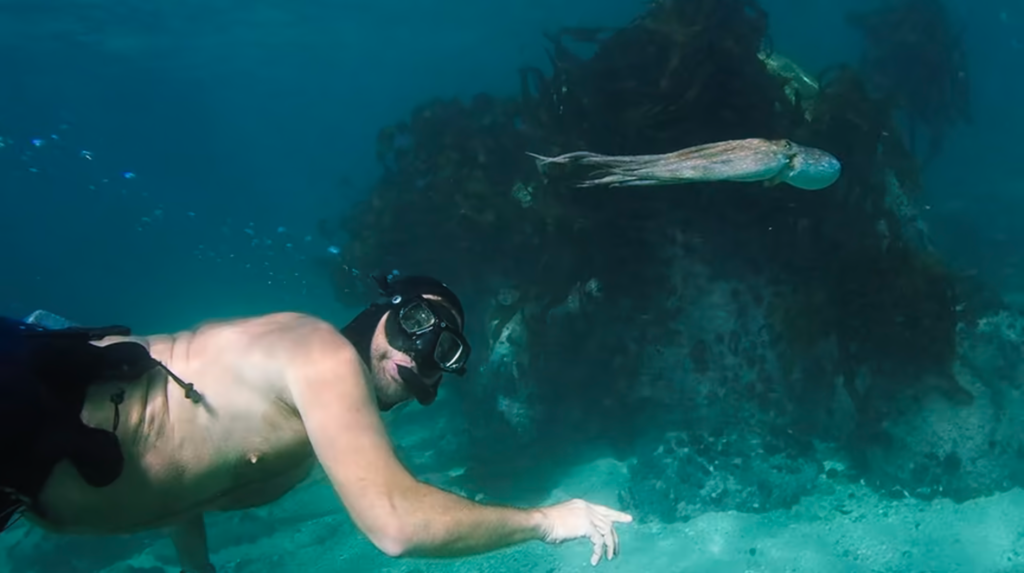
But familiarity with humans can have detrimental implications. In the following shot, the two swim together as the camera tracks their movement. The soundtrack helps to intensify the sublimity of this moment as a rippling piano melody builds over swelling strings. However it also sentimentalises an encounter which could otherwise be perceived in a more sinister light. As Craig swims behind the octopus, his movements seem to mimic those of a hunter tracking its prey. Thus, as he continues to domesticise the octopus and familiarise her with humans, he is likely making her more vulnerable to hunters or fishermen.
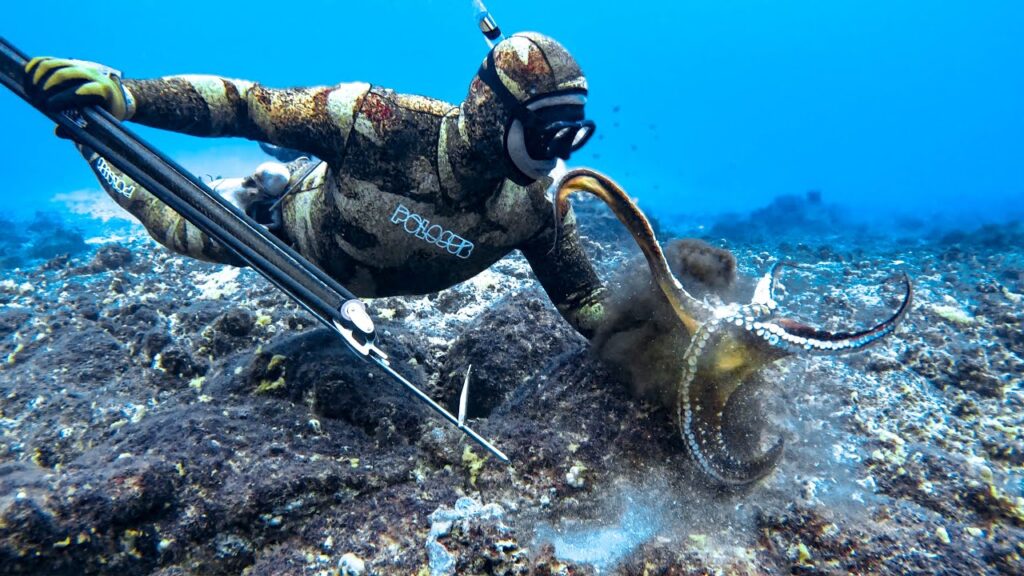
The film clearly tries to produce a non-sceptical viewer by luring us into the magic of this strange companionship and ignoring any dangerous implications. However, the cinematography of these tracking shots suggests that there must be a second person filming the interaction, and in ‘The Making of My Octopus Teacher’ we learn that cinematographer Roger Horrocks was indeed responsible for many of these perspective shots.[2] The artificiality of this moment therefore detracts from the romanticised plot of the film and undermines the uniqueness of this relationship to a more sceptical viewer.
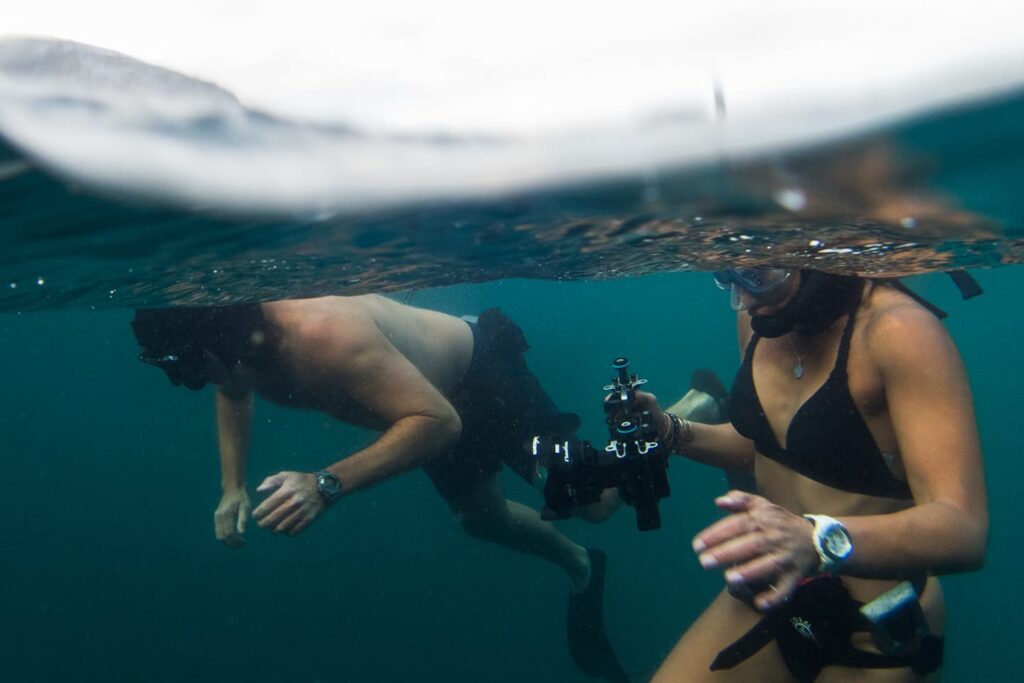
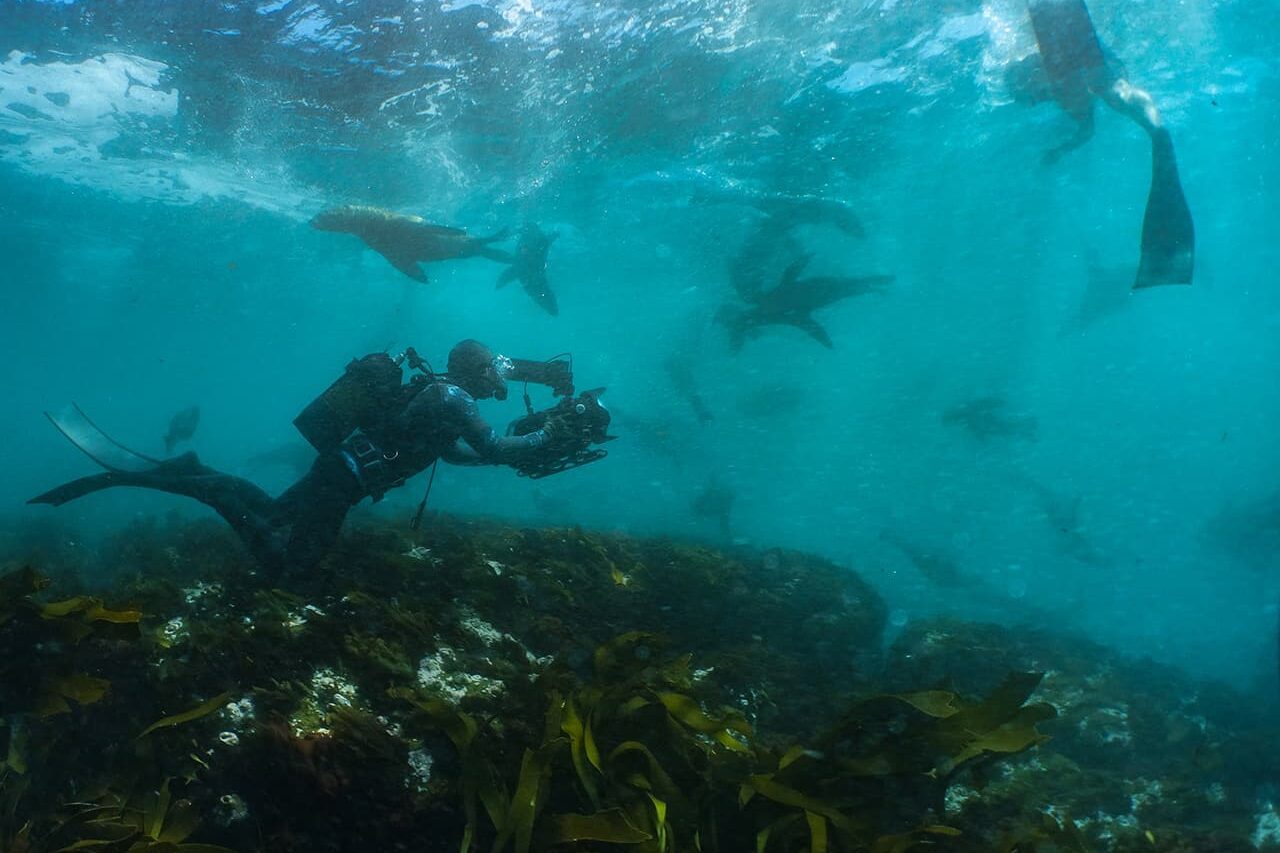
When the octopus finally comes to rest on Craig’s chest, the positioning of the camera makes her size and vulnerability incredibly apparent. Compared with more ambiguous close-ups and long shots earlier in the scene, this low-angle medium shot places the octopus directly on top of Craig so that her minute frame takes full focus. For the first time, we see the octopus’ size in direct comparison to the human body as he looks down at her from above. This draws attention to her insignificance within the vast ocean that is her home and encourages empathy from the viewer through carefully constructed camera work.
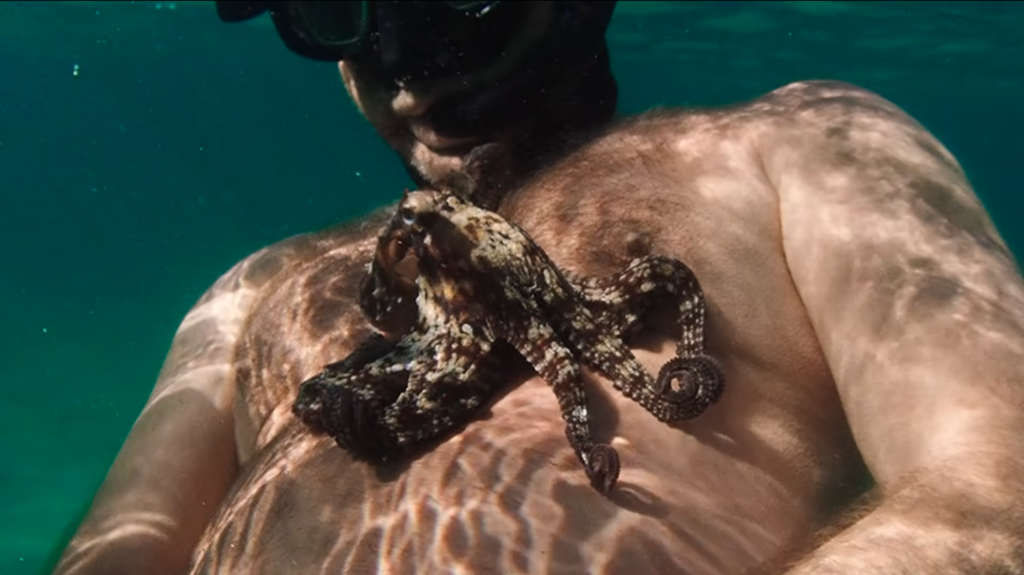
This moment also acts as a climax in the bond between human and animal. As the light refracts in the water and casts dappled shadows on Craig’s chest, his skin seems to reflect the octopus’ mottled complexion. At the very moment that he states ‘the boundaries between her and I seem to dissolve’ we see this claim become a reality on screen. However, for an animal that is so skilled in camouflage, the octopus does not attempt to match Craig’s skin tone. Despite the vulnerability of open water, she feels safe enough in his presence not to employ her usual defence methods. This is a powerful moment in which animal and human seem connected in utter harmony. But when we dissect the use of soundtrack, camera angles and voiceover in this short scene alone, it becomes clear that, although factual, documentary films can be just as exaggerated and romanticised and must be approached with as much scrutiny as any other genre in order to establish the true nature of animal-human relationships.
Bibliography
Primary sources
My Octopus Teacher, dir. James Reed, Pippa Ehrlich (Netflix, 2020) https://www.netflix.com/watch/81045007 [Accessed 10 Jan 2024]
Secondary sources
Calarco, Matthew, ‘Empathy’, Animal Studies: The Key Concepts, (Taylor & Francis Group, 2020), p.58. https://ebookcentral.proquest.com/lib/sheffield/detail.action?docID=6310857 [Accessed 10 Jan 2024]
Thiyagarajan, Swati, ‘The Making of My Octopus Teacher’, Sea Change Project, 30 August 2020, https://seachangeproject.com/stories/the-making-of-my-octopus-teacher/ [Accessed 12 Jan 2024]
Film Details
Title: My Octopus Teacher
Directed by: Pippa Ehrlich and James Reed
Year of Release: 2020
Distributor: Netflix
Kind of animal: Octopus
Types of human-animal relation: Companionship, Interest/Observation, Spectacle
Relevant major genres: Documentary, Natural History, Biographical, Family Film
Relevant subgenres: Investigative, Emotional, Conservational
[1] Matthew Calarco, ‘Empathy’, Animal Studies: The Key Concepts, (Taylor & Francis Group, 2020) https://ebookcentral.proquest.com/lib/sheffield/detail.action?docID=6310857 [Accessed 10 Jan 2024]
[2] Swati Thiyagarajan, ‘The Making of My Octopus Teacher’, Sea Change Project, 30 August 2020, https://seachangeproject.com/stories/the-making-of-my-octopus-teacher/ [Accessed 12 Jan 2024]
